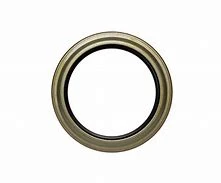Differential Seal Solutions - Precision Engineering for Enhanced Performance
Understanding Differential Seals Key Aspects and Applications
Differential seals are essential components in various mechanical systems, particularly in automotive and aerospace engineering. They serve a critical function by maintaining a barrier between two fluids, preventing cross-contamination while allowing for differential movement. This article explores the importance, design, and applications of differential seals.
At its core, a differential seal functions to isolate different areas within a system, allowing parts to move independently without leaking fluids. This is particularly vital in applications such as gearboxes, where differential motion is required between various gears. A well-designed differential seal contributes to the overall efficiency of a system by minimizing leakage, reducing wear and tear, and extending the lifespan of mechanical components.
One of the key aspects of differential seals is their design. Different materials, such as rubber, composite materials, and metals, are used depending on the application requirements. Factors such as pressure, temperature, and the nature of the fluids involved play a crucial role in material selection. For example, high-temperature applications often necessitate seals made from specialized high-performance elastomers that can withstand thermal degradation while maintaining their sealing properties.
differential seal

In addition to material considerations, the geometry of differential seals is crucial. Common configurations include O-rings, lip seals, and custom-shaped seals, each designed to meet specific sealing needs. The correct geometry ensures that seals fit snugly and create effective barriers against fluid leakage.
The applications of differential seals extend beyond automotive and aerospace industries. They are widely used in hydraulic systems, oil and gas extraction, and even in household appliances. In hydraulic applications, for instance, maintaining pressure integrity is vital for system performance, and differential seals play a key role in achieving this.
Moreover, as industries shift towards environmentally friendly practices, the demand for seals that can handle bio-based fluids and reduced environmental impact is increasing. Manufacturers are therefore focusing on developing seals that are not only efficient but also sustainable.
In conclusion, differential seals are critical to the functionality and efficiency of various mechanical systems. Their design and material choices are essential in preventing leaks and ensuring reliable performance across a wide range of applications. As technology advances, the development of innovative sealing solutions will continue to play a significant role in enhancing system reliability and sustainability.
-
Understanding the Front Main Engine Seal: Purpose, Maintenance, and Installation
News Jul.29,2025
-
Understanding O-Rings and Seal Rings: Types, Applications, and Custom Solutions
News Jul.29,2025
-
Understanding Crankshaft Oil Seals: Rear Seals, Pulley Seals, and Their Role in Engine Integrity
News Jul.29,2025
-
The Importance of Front and Rear Crankshaft Seals in Engine Performance and Oil Management
News Jul.29,2025
-
Crank Oil Seals: Functions, Types, and Cost Considerations in Engine Maintenance
News Jul.29,2025
-
A Comprehensive Guide to O-Rings and Seals: Types, Materials, and Global Applications
News Jul.29,2025
-
Mastering Diesel and Performance Engine Maintenance: A Guide to Critical Oil Gaskets
News Jul.28,2025
Products categories















